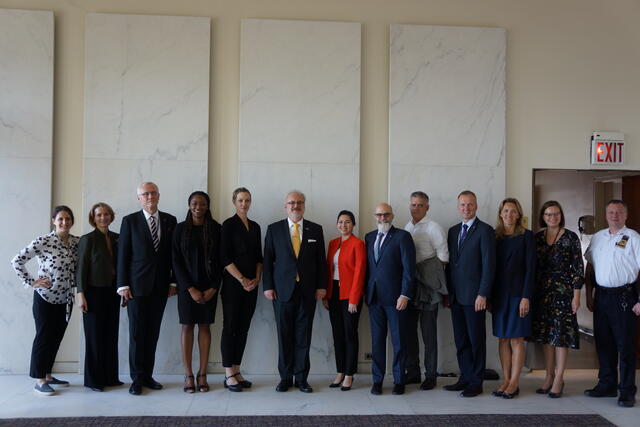
Latvian President Eglis Levits visits SIPA to discuss digital technology

President Eglis Levits of Latvia visited SIPA on September 25 for a private discussion of digital technology and its impact on society hosted by Senior Research Scholar Jason Healey.
Levits, a former Soviet-era dissident and key figure in Latvia’s independence movement in the late 1980s and early 1990s, was elected to his country’s presidency in May 2019. In remarks at the 74th UN General Assembly, Levits talked about potential risks to independence and free thought and action caused by the rapid development of technology. He also addressed the need for responsibility and accountability in the development of technology to prevent its potential malicious usage.
Digital technology has promoted massive changes in societies around the world—increasing productivity, driving citizen engagement, and facilitating efficient government service delivery to citizens. But despite these positive impacts, recent events have shown that society’s increasing dependence on and usage of digital technology is not without its challenges.
We now face the growing undertones of negative feedback brought about by technological change. These challenges will have lasting impacts on human rights, politics, society, and democracy. As a result, policymakers must prioritize the development of different policy tools to address these issues.
Chatham House rule precludes a full accounting of the discussion of how to make technology work for society. But we can report that participants—including key advisers, ambassadors, and SIPA faculty members—considered the impacts of regulatory mechanisms and methods to engage society in order to ensure the sustainability of an open and free Internet.
All told, it was a dynamic conversation that examined the global and national policy concerns on cyberspace norms and conventions, the lack of synergy between technology companies and local governments, and the challenges of user data and privacy.
Thanks to Jennifer Gennaro MPA ’2018, the current Fellow for SIPA's Technology and Policy Initiative, for contributing this article.